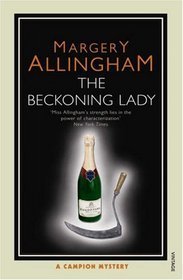What do you think?
Rate this book


244 pages, Paperback
First published January 1, 1955
“The Beckoning Lady,” said Mr. Campion. “How came a pub there, down at the end of such a lane? It isn't even on a through road.”
“It was never a pub.” Amanda spoke without taking her eyes from the scene. “It's just the local name for the house, which got into the deeds at some point. No one knows why it's called that, except that as far back as anyone can trace it has been owned by a woman, and there's always been trouble over it because it is said that as soon as a man sees it he tries to get hold of it to do it in. It has an extraordinary history. There have been dozens of lawsuits over it. This bank we're sitting on is the beginnings of a railway. There was an awful row about that last century, but it got stopped in the end at enormous cost. Then Minnie's mother had it, and her father the painter fell for it, and when she wouldn't sell it he stayed on and married her.”